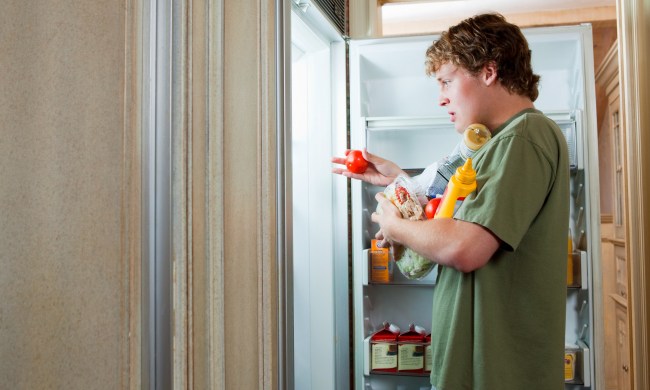For concerned moms and dads, their child’s diet and overall nutrition is often a central focus of that parental concern. “Does my child eat enough, or enough of the right things?”, they may be wondering. Or perhaps, “are they lacking minerals and vitamins in their meal plans?” For some, vegetarian baby food or, better yet, a vegetarian baby diet can be the key to those questions. If you are a practicing vegetarian, chances are you are pondering these questions to reinforce the safety – or lack of safety — of that lifestyle for your growing baby. All the while, allowing them to thrive and develop while still being an active member of the vegetarian family. While vegetarianism and veganism are not the same types of dietary lifestyles, they both illicit a certain type of reaction from folks when parents are asked or questioned about their practicing family’s techniques.

Success and safety of an infant’s vegetarian diet
When it comes to babies and their diets after the age of 6 months, plant-based ones are perfectly safe if planned for properly. It’s absolutely acceptable for parents to limit their children from eating certain foods based on their personal lifestyle choices, however doing so can open parents up to the need for certain precautions and extra steps that must be taken by vegetarian parents to ensure their child receives complete necessary nutrition. A few major things vegetarian parents or guardians should try to bear in mind when raising their children in that direction are; Macronutrients.
- Protein – Babies need a consistent source of daily protein to survive. The main source of protein for babies younger than 6 months is either their mother’s breastmilk or store bought, infant formula. Both carry proteins and iron, though breastmilk is arguably more likely to hold the necessary levels of those nutrients needed for baby’s survival than the powdered stuff.
- Fats – Fats are a paramount part of a successful and balanced diet, however it’s important vegetarian parents’ factor this into their meal planning. Because they are not receiving protein sourced from animals like chicken and beef, other protein rich foods are replaced. Those same protein rich foods can also carry heavier loads of fats in their metabolic makeup and should be used in moderation.
- Carbohydrates – Carbs are essential parts of our daily diet, breaking down into necessary energy and sugars to help keep us going throughout the day. These key nutrients are often found in breads, cereals, pastas, and rice. However, much like important and necessary fats, it’s important to keep carbs in check.Additionally, it’s vital that parents not overcompensate the quantities of fats and carbs to make up for a lack of dietary proteins. A more leveled and balanced diet of macronutrients is what you’re looking for in this instance.
Additionally, it’s vital that parents not overcompensate the quantities of fats and carbs to make up for a lack of dietary proteins. A more leveled and balanced diet of macronutrients is what you’re looking for in this instance.

How to supplement needed proteins for vegetarian infants
If you and your support system have decided to go the way of vegetarianism for your infant’s diet in addition to your own, you may be wondering what types of products or foods you can use to supplement the needed proteins that are essential to your child’s survival.
- Proteins – Because this is the primary source of energy for homo-sapiens, protein is a cornerstone of our diet, whether we are carnivorous or not. A few protein-rich foods that are also vegetarian friendly are: lentils, beans or legumes, chickpeas, tofu, and nuts. But don’t forget, these ingredients and foods can also be packed with added fats. Staying balanced is key in this instance.
- Iron – Due to the lack of consumed meat in a vegetarian’s diet, iron levels can sometimes drop off, causing a whole host of issues such as anemia. Iron aids the body with moving oxygen through the body to the lungs, as well as storing and using oxygen within the muscles of the body. Iron is also key in brain development and function, making it vital to your baby’s daily diet in order for them to continue to grow. Some foods rich in iron are green vegetables such as kale, legumes, wholegrain and iron-fortified cereals, cashews, and dried apricots.
- Calcium – Even though vegetarians do not consume animal meat products, they do still consume their buy products such as cow’s milk and poultry eggs. For stronger and denser bones, calcium must be in abundance for growing and developing babies.
Staying in the loop
As always, whenever there is a change or decision to be made when it comes to your child’s biological well-being, we always like to recommend parents reach out to their child’s pediatrician prior to implementing those changes. These highly, and specially trained pediatric experts can be a treasure trove of information for parents about their child’s overall health and developmental needs. They are also vastly more in tune with any medical or mental health situations or needs that could be ill-effected by such a change, or there to encourage you every step of your healthy and informed way.



